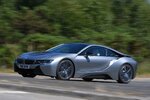While the Zero Carbon initiatives are welcome in consideration of Global Warming I can't help thinking that this is all going to cost use more than we currently pay for our energy - be it Electricity or Fuel Oils and Gas.
If everyone switched over to EV tomorrow the government would lose a lot of tax revenue - about 58p per litre. This will have to come from somewhere else.
Yes - one area of expected taxation is for Pay as you go - road charging. The more you use, the more you pay.
One other area of recovered revenue is to stop subsidising the fossil fuel industry.
EVs are currently expensive to switch to if you take into account what you really need to be able to meet your current travel needs. I don't see these getting any cheaper in the near to mid future.
That's a very debatable statement. It's true that EV's are currently more expensive than their ICE counterparts to buy new, but;
prices are coming down.
VED is (currently 0)
cost per mile is significantly lower for EV vs ICE
servicing costs are lower
residual values are so far higher than ICE (because of lower cost to service and fewer parts to fail).
What is importantly not available right now is a large used market. There are only a few models that have been around for a long time so availability of older (more affordable) cars is still limited.
For some cars, the value is significant in their market segment (I challenge anyone to find a saloon or hatch in the executive space that competes with the Polestar 2 on performance or spec at that price). That's not to say we dont need more choice at lower price points - we do.
As the changeover deadline approaches I predict the cost of used conventional ICE vehicles will rise even more as people wont want to switch, perhaps because of range anxiety. Those not switching will pay more for their fuel as goverments try to recover lost tax revenue and stick to the rule of raising prices to discourage people.
I completely agree with your second statement. Staying with ICE is going to get expensive. But I disagree with the 1st part. IMHO the issue with "range anxiety" which is pretty much non-existent for any EV driver, but is a thing for ICE drivers thinking of moving to EV - will go away in the next couple of years as 1) battery ranges continue to grow and 2) the public rapid infrastructure builds out. I can honestly say that after my 1st week of ownership (when I was staying on a non-hookup CL with my caravan for 4 days) I have not had any range anxiety. I just think about when and how I will charge before I hit the road.
Then there's the switch over to Heat Pumps. About 13% of housholds are already classified as being in fuel poverty. Electricity is an expensive energy source compared to gas and other fuels and while there are initiatives to improve housing efficiency and that there needs to be a balanced approach to the changeover as not to make fuel poverty worse, how well this will be acheived remains to be seen.
I totally agree that for those in fuel poverty, changing the main heating infrastructure in your home is non-viable. Which is exactly why there needs to be legislation NOW for all new houses to be built using ground source heating, with battery and solar as a default. When putting up a new build it costs very little to include that infrastructure as default and results in very low fuel bills for the properties.
In the Scottish Governments Heat in Buildings Strategy of some 18 pages just one sentence includes the fact In some cases, zero emissions systems will cost more to run than the fossil fuel systems they replace.
Of course this implies that
In other cases, ezro emissions systems will cost LESS to run than the fossil fuel systems they replace.
Then there's the changeover cost in replacing a perfectly good system with another. While there may be subsidies usually these are hard to obtain and often don't cover the true cost. Look for details on the Green Homes Initiative to see how well that went - or didn't.
No denying it didn't work out well, but it should not be a barrier to a better organised system being put in place.
Then there's the possible loss in tax because Electricity Generators will not be paying as much tax on their fuel sources.
But they should be able to pay more in tax on profits - right?
I can just see the cost of Electricity increasing by more than inflation and considering that we should be using more renewable sources in the future, for which the energy source is 'free', that's going to be hard to accept.
Given that for renewables the source is free - why do we think that the costs will rise?
